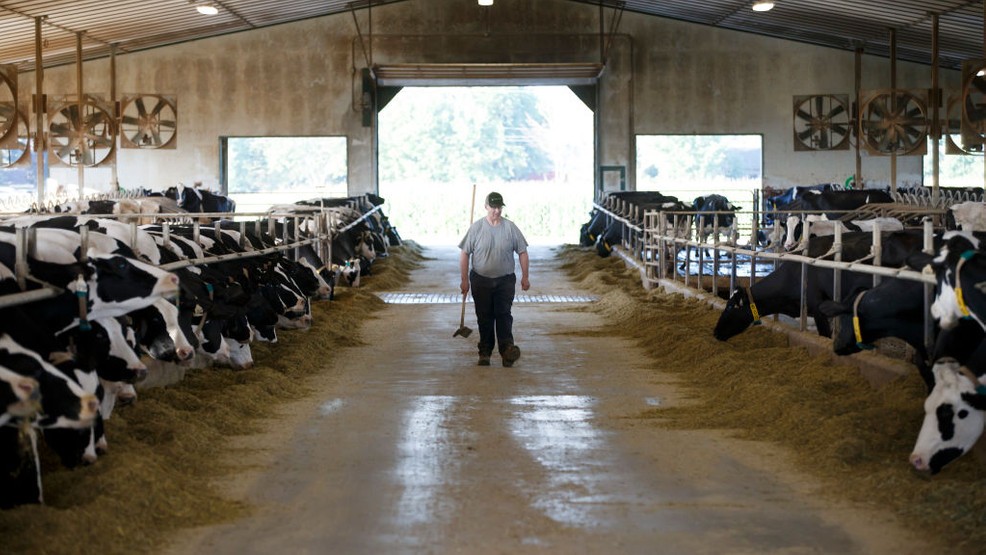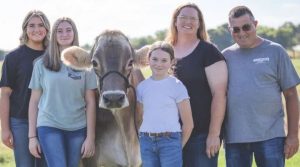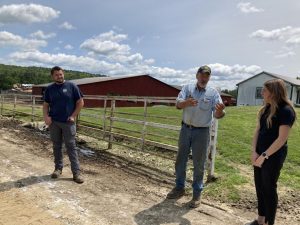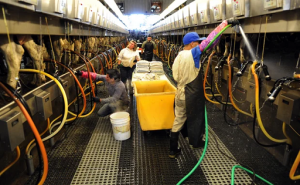
The series is a partnership between WARF, UW-Milwaukee, the Wisconsin Technology Council and Michael Best Strategies.
John Austin, a nationally known scholar and author will anchor the first of two webinars Aug. 11 “Shaping the ‘Endless Frontier’: How the Midwest can spark the U.S. economy.” The series draws its name from the “Endless Frontier Act,” which has been introduced in both houses of Congress with bipartisan sponsors including U.S. Rep. Mike Gallagher, R-Green Bay.
The act proposes expansion of the National Science Foundation, $100 billion for advancing science and tech research and development, and $10 billion for regional technology hubs.
Erik Iverson, CEO of WARF, and Ruben Anthony, CEO of the Urban League of Greater Madison, will join Austin in the Aug. 11 webinar. Tom Still, president of the Wisconsin Technology Council, will moderate.
Together, panelists will explore recent research on how place-based investments in emerging growth centers across the country can remedy regional gaps in capital investment, maintain U.S. leadership in innovation and attract the technology stars of the future to the Midwest.
Iverson noted the Midwest region has been recognized for quality technology innovation, adding Wisconsin is “leading the charge.”
“I very much look forward to discussing how our region can catalyze research and technology across the nation and sharing our successes and ongoing opportunities with the world,” he said.
Still said the Wisconsin Technology Council has long believed the “R&D” resources available in Wisconsin and the Upper Midwest are “second to none” including the region’s academic institutions, federal laboratories, manufacturers, emerging tech hubs and resources that help turn ideas into products.
A second webinar on Sept. 16 will drill into the details of the “Endless Frontier Act” and how it will become part of the economic policy debate taking place during the fall elections as well as the upcoming sessions of Congress. Panelists will include Gallagher, U.S. Rep. Ro Khanna, D-California and Mark Mone, UW-Milwaukee chancellor.
“These are critical conversations for the new normal in a COVID-19 world that has disrupted nearly every industry – and has hit higher education hard,” Mone said. “It is imperative that we invest in research, tech hubs and innovation in this environment. Future generations will depend on new knowledge and discoveries that will give rise to economic prosperity.”
Registration is free but required in advance.
Register for the Aug. 11 webinar: https://warf.wufoo.com/forms/z1hdta8813xh0ga/
Register for the Sept. 16 webinar: https://warf.wufoo.com/forms/z5m0xhs0nn8jl9/
To learn more, visit: warf.org/frontiers
— The Wisconsin Farm Center is hosting a series of Question, Persuade, Refer virtual training sessions for agriculture service providers, farmers and the agricultural community to address farmer mental health.
QPR is an intervention method designed to help trainees identify and interrupt mental health crisis situations and direct individuals to proper care.
The Farm Center, a part of the Wisconsin Department of Agriculture, Trade and Consumer Protection, will host the first virtual session July 29. Five additional virtual sessions are scheduled this summer through early fall.
“Farming is a complex occupation that requires agricultural producers to connect with a wide variety of different service providers such as business consultants, financial lenders, equipment dealers, animal health practitioners, and others,” said Jayne Krull, Farm Center director. “QPR training can help these providers learn how to recognize the warning signs of a mental health crisis in their interactions with farmers and refer them to resources so they can get the help they need.”
There is no cost to attend. The training sessions are part of several farmer mental health initiatives funded through the 2019-21 biennial budget.
See the release: https://www.wisbusiness.com/2020/datcp-hosting-question-persuade-refer-virtual-training-sessions-for-agriculture-service-providers-and-farmers/
— The state had another record case day on Saturday with 978 new cases. Sunday brought 830 new cases.
The seven-day average for daily cases is 838, a new record that has continued to rise.
The percentage of positive tests per total tests is 10.3 percent, the highest it’s been since July 4. That’s up from 6.6 percent Friday and 7.9 percent on Saturday.
The new cases bring the cumulative case count to 42,315 and active cases to 8,838.
The number of recovered patients number 32,628 or 77.1 percent, while 2 percent of patients have died. Active cases are defined as those still in a 30-day waiting period of symptom onset or diagnosis and account for 20.9 percent of the confirmed cases.
The state received 8,089 total tests Sunday; Wisconsin has a capacity for 24,162 tests per day.
Click here for more coronavirus resources and updates: https://wispolitics.us12.list-manage.com/track/click?u=c540e35869d1ba4ca61b4228e&id=254f7fdec6&e=63cd46885a
— COVID-19 deaths in the state rose by 11 over the weekend, bringing the total to 844.
La Crosse and Trempealeau counties reported its first deaths this weekend.
Counties reporting deaths include: Milwaukee (411), Racine (66), Kenosha (47), Brown (46), Waukesha (40), Dane (33), Rock (24), Washington (19), Walworth (18), Ozaukee (16), Grant (14), Winnebago (14), Waupaca (13), Outagamie (10), Clark (7), Fond du Lac (6), Dodge (5), Jefferson (4), Richland (4) and Sheboygan (4).
Door, Forest, Marinette and Sauk counties report three deaths each. Adams, Buffalo, Calumet, Eau Claire, Marathon, Polk and St. Croix counties report two deaths each.
Barron, Bayfield, Burnett, Columbia, Green, Iron, Jackson, Juneau, Kewaunee, LaCrosse, Langlade, Manitowoc, Marquette, Monroe, Rusk, Trempealeau and Wood counties report one death each.

























